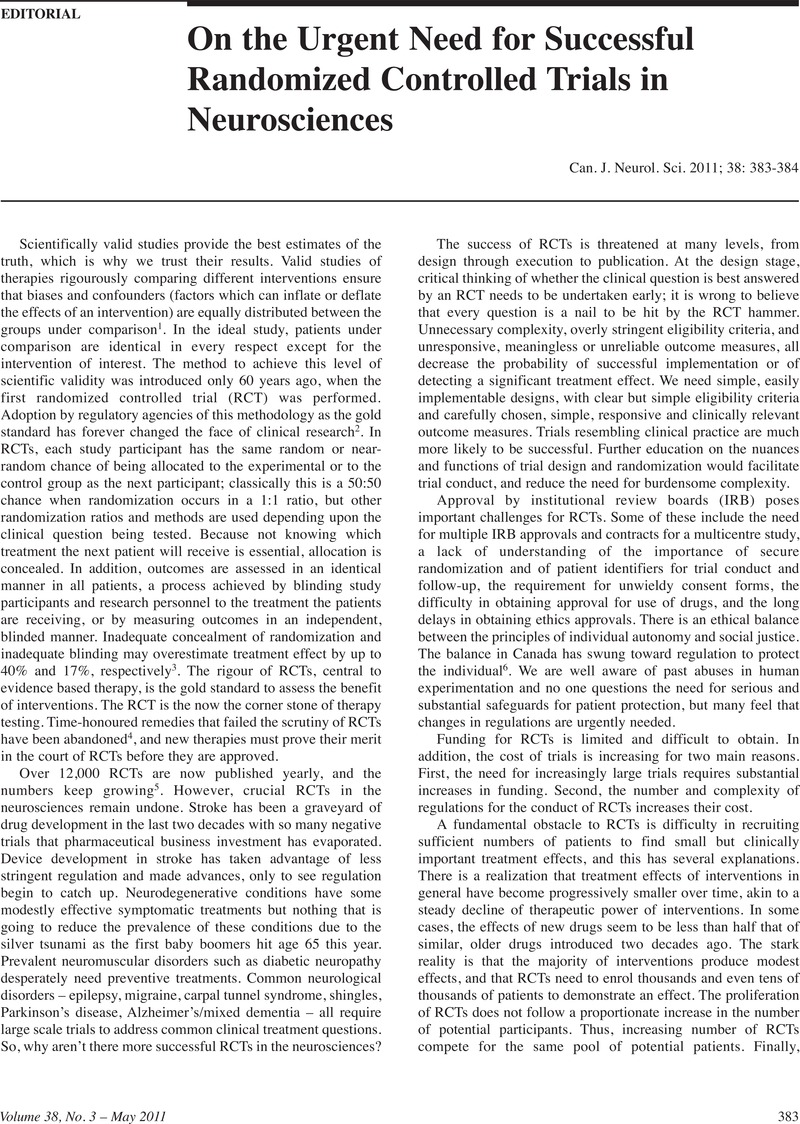No CrossRef data available.
Article contents
On the Urgent Need for Successful Randomized Controlled Trials in Neurosciences
Published online by Cambridge University Press: 02 December 2014
Abstract
An abstract is not available for this content so a preview has been provided. As you have access to this content, a full PDF is available via the ‘Save PDF’ action button.

- Type
- Editorial
- Information
- Copyright
- Copyright © The Canadian Journal of Neurological 2011
References
1
Sackett, DL.
Bias in analytic research. J Chronic Dis. 1979;32: 51–63.CrossRefGoogle ScholarPubMed
2
MRC Streptomycin in Tuberculosis Trials Committee. Streptomycin treatment for pulmonary tuberculosis. Br Med J. 1948;ii:769–82.Google Scholar
3
Schulz, KF, Chalmers, I, Hayes, RJ, Altman, DG.
Empirical evidence of bias: dimensions of methodological quality associated with estimates of treatment effects in controlled trials. JAMA. 1995;273(5):408–12.CrossRefGoogle ScholarPubMed
4
The EC/IC Bypass Study Group. Failure of extracranial-intracranial arterial bypass to reduce the risk of ischemic stroke. N Engl J Med. 1985;313:1191–200.CrossRefGoogle Scholar
5
Sackett, DL, Hoey, J.
Why randomized controlled trials fail but needn’t: a new series is launched. CMAJ. 2000 May 2;162(9): 1301–2.Google ScholarPubMed
6
Hebert, PC, Fergusson, DA.
Are we keeping research participants safe enough?
CMAJ. 2010 July 13;182(10):E428.CrossRefGoogle ScholarPubMed
7
Lehrer, J. The truth wears off. Is there something wrong with the scientific method? The New Yorker. 2010 December 13.Google Scholar
8
Ioannidis, JP.
Contradicted and initially stronger effects in highly cited clinical research. JAMA. 2005 July 13;294(2):218–28.CrossRefGoogle ScholarPubMed


